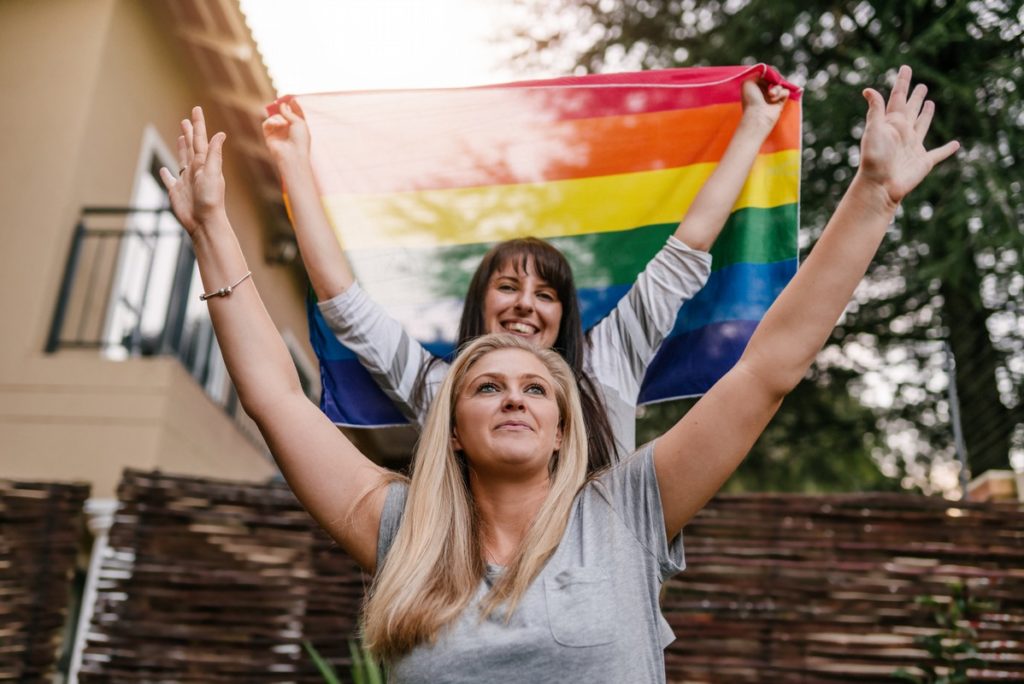7 Reasons To Seek Addiction Treatment
Substance use disorder, which is more colloquially known as drug addiction, is a serious mental...
toll free: 844.955.3042
local tel: 561.464.6505
fax: 561.450.6637
info@recointensive.com
RECO Intensive
140 NE 4th Avenue
Delray Beach, FL 33483
Studies have recently brought to light demonstrated evidence of the increased risk of addiction some groups face due to their sexual orientation or identified gender. There are many reasons why those who identify as LGBTQ have higher rates of addiction than others. Understanding these factors will help create the most comprehensive intensive outpatient therapy and successful addiction treatment programs for these individuals.
Let’s review the statistical information available which demonstrates this link, explore some of the societal and environmental factors that may contribute to the connection between being LGBTQ and developing a substance use disorder, and discuss treatment options available that can help you or a loved one overcome these obstacles.
This connection may have always been present and is understood by many substance abuse counselors and those within the community, but it has become more clearly documented with more federally funded questionnaires, forms, and surveys that ask for more detail regarding gender identity and sexual orientation from those willing to answer such questions.
By more individuals being willing to identify themselves openly, a wealth of information becomes available that helps the LGBTQ community bring focus to their unique experience, creates discussion about issues, and helps gain access to services specifically designed to meet these challenges through inpatient and outpatient drug rehab centers.
There have been a number of surveys and studies since 2013 that bring to light many insights into substance use disorders and other addictive behaviors within the community. Some of the highlights for discussion include:
Addiction is not the only increased risk for this group of individuals. It is also more likely that they will develop other behavioral disorders or mental health conditions. The corresponding need for intensive outpatient therapy and sober living facilities that can support these individuals is becoming more and more apparent.
Some of the connections found in research include:1


So what makes those who identify as LGBTQ more likely to develop an addiction? The answers here are many-layered and, in some cases, unique to this community. At a high level, these factors are most often seen as part of the problem:
This is not to say that all individuals who identify as LGBTQ would have these additional factors; however, for many people, the realities of these experiences can also make addiction or substance abuse more likely:
Addiction treatment centers provide a broad spectrum of recovery experiences, usually based on proven therapy techniques combined with wellness and spiritual components. Still, many in the LGBTQ community struggle to find specialized groups, sober living facilities, and intensive outpatient therapy programs, which are known to provide better outcomes.1
By tailoring programs that address some of the root causes of addiction within the LGBTQ community, many recovery centers are:


Every path into and out of addiction is a unique journey. Just as every individual has a unique history and life experience, we all need to find a treatment program that accepts and supports who we are as human beings. Choosing the best inpatient treatment center or intensive outpatient therapy program for you or a loved one may require some research.
Call or chat with the top centers in your area and ask if they provide inclusive or specialized treatment programs that address issues like minority stress. A treatment program that only addresses your substance use without helping you deal with the stresses, mental health challenges, and medical healthcare issues associated with your addiction may not provide the support needed to recover fully.
At RECO Intensive in Delray Beach, Florida, we truly embrace the unique nature of each individual and work with them to develop a treatment plan that will offer a comprehensive path to healing. If you or your loved one is struggling with substance use and feeling cut off from compassionate treatment options, contact us today to restore the joy and meaning in daily life that should be available and achievable for everyone.
Sources: